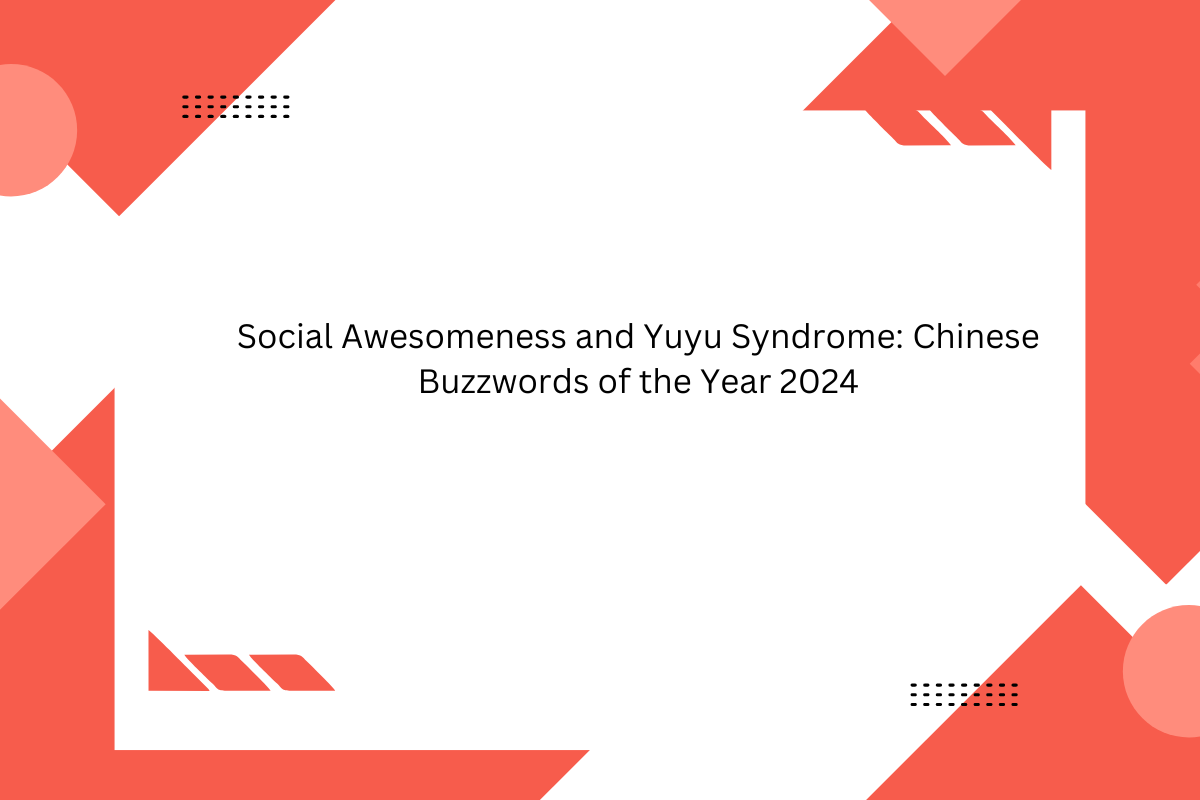Popular Chinese Slang of the Year 2024
What's unusual about 2024 for China is that two terms have garnered widespread attention and discussion: Social Awesomeness and Yuyu Syndrome. These two terms highlight new trends in contemporary social and mental health spheres, making them the hottest buzzwords of the year 2024 in China.

社交牛逼症 (shè jiāo niú bī zhèng): Exploring a New Phenomenon in Social Circles
Social Awesomeness, known as "shè jiāo niú bī zhèng" in Chinese, originates from the colloquial term "niubi," meaning "awesome" or "impressive." This term, initially coined in internet slang, has swiftly 迅速地 (xùn sù de) become a hot topic in real-life scenarios in 2024. Those with Social Awesomeness are typically active on social media platforms, boasting a large following and garnering admiration for their exceptional social skills and charisma.
The rise of Social Awesomeness reflects the growing importance of personal image and recognition in contemporary society. In this digital age, social media has become a vital platform for individuals to showcase themselves, gain recognition, and build social connections. As a result, individuals with Social Awesomeness often excel at utilizing social media to showcase their lives, talents, and charm, thereby gaining more attention and acknowledgment.
迅速地 (xùn sù de), adverb, swiftly
Examples:
- He swiftly ran towards the finish line.
他迅速地跑向终点。
Tā xùn sù de pǎo xiàng zhōng diǎn. - She swiftly answered the teacher's question.
她迅速地回答了老师的问题。
Tā xùn sù de huídále lǎoshī de wèntí.

玉玉症 (yù yù zhèng): Exploring a New Trend in Mental Well-being
The concept of jade syndrome highlights the potential impact of cyberbullying and negative speech on an individual's mental health in today's digital society. In the Internet age, people are more vulnerable to pressure and attacks from the Internet, especially those who frequently use social media 媒体 (méi tǐ). Continuous negative comments and the pressure of the virtual world can lead to psychological problems such as low mood, low self-esteem, social withdrawal, and even severe depressive symptoms.

媒体 (méi tǐ), noun, media
Examples:
- I like watching media reports.
我喜欢看媒体报道。
Wǒ xǐhuān kàn méitǐ bàodǎo. - He is a media journalist.
他是一位媒体记者。
Tā shì yī wèi méitǐ jìzhě.
Key Sentences:
- He suffers from Social Awesomeness Syndrome
他患有社交牛逼症。
Tā huàn yǒu shèjiāo niúbī zhèng. - She suffers from Yuyu Syndrome and fell into depression due to cyberbullying.
她患有玉玉症,因网络欺凌而陷入了抑郁。
Tā huàn yǒu yù yù zhèng, yīn wǎngluò qīlíng ér xiànrùle yìyù. - His Social Awesomeness Syndrome manifests as his continuous seeking for validation online.
他的社交牛逼症表现为他在网上持续不断地寻求认可。
Tā de shèjiāo niúbī zhèng biǎoxiàn wèi tā zài wǎngshàng chíxù bùduàn de xúnqiú rènkě.